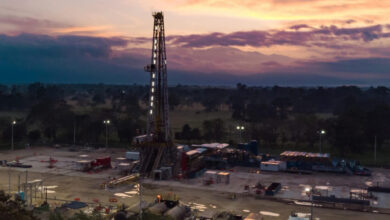IADC seeks drilling contractors to develop alarm management guidelines
Alarms are indispensable during drilling operations, but when personnel are flooded with alarms, it’s easy to overlook or disregard some of them. IADC is seeking drilling contractors to help address gaps between standards addressing alarm protocols for alarms on drilling control systems.
The IADC Advanced Rig Technology (ART) Committee has formed an Alarm Management Task Force for this project. The task force will investigate whether IADC can develop guidelines for drilling contractors and equipment manufacturers to improve alarm management. The work group is organized under the auspices of the ART Committee’s Drilling Control Systems (DCS) Subcommittee.
The group will specifically review existing protocol standards for alarm management and reporting. This will include the alarm’s role, alarm message, equipment origin, alarm meaning, priority, action and/or resolution. The goal is to identify the methodology of applying this standard to a DCS.
The task force’s work to date reveals variability in how DCS alarms meet process alarm standards set forth by the Engineering and Equipment Materials Users’ Association, the International Standards Association and the Norwegian Petroleum Directorate. Reasons include too many alarms, lack of a clear alarm philosophy and missing documentation.
The task force has recommended that drilling contractors create a single alarm philosophy to explain how they intend to handle alarms for each system on their rig, from drilling to fluid handling to positioning. It also advises increasing the amount of documentation relating to alarms, including a master alarm list that would define all alarms available, an alarm action list to outline what to do in case of an alarm, and a document that specifies the responsibility of those interfacing with the alarm system.
At this time, the task force is working to develop guidelines for DCS alarms that would help contractors meet these recommendations and align their alarm management practices more closely with those prescribed by standards. To do so, the task force is seeking input from contractors. The ART committee will review the status of the guidelines during its meeting on 17 March and plans to submit a draft of the guidelines to the ART committee on 19 May.
To participate in the guideline drafting, please contact Christopher Goetz, who is leading the task force, or Trenton Martin, Chair of the DCS Subcommittee.




